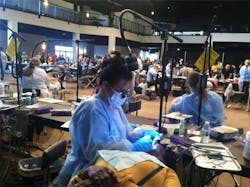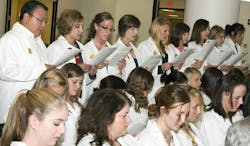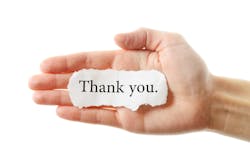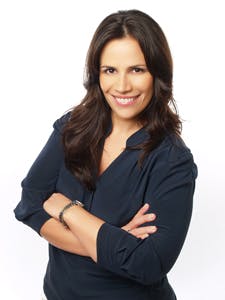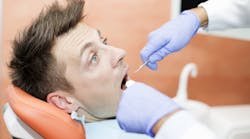December 18, 2013
Reading Michael Bloomberg’s latest editorial regarding his tips for success got me thinking about all the lessons I’ve learned in the past 18 years as a practicing dental hygienist. As an educator I have the privilege of passing these lessons along to all the students entrusted to my care. Some pay attention and listen. Others… not so much. Declaring myself an expert on all things dental hygiene (*chuckle*) or, at the very least, a successful dental hygienist, I offer these tips to you, the future of my profession, in no particular order:
1. Keep your private business off The Facebook and The Twitter, et al
No one enjoys The Facebook more than I, with all its socializing and picture gazing, but there is a price to pay. Be very careful about the information and images you share, because the world is a small place and there is no shortage of people, “friends” and otherwise, who are watching and judging you. It is human nature. Your image – your reputation – is more valuable than gold. Respect it.
2. Continue your education
The practice of dental hygiene is at a very exciting time. Your professional organization, ADHA, is working diligently every day across the nation to expand the duties you are permitted to perform. These expanded functions, however, will only be performed by hygienists who are properly educated. Do not become complacent. Get your local anesthesia certification. Get a bachelor’s degree, if you only have an associate’s degree. Get a master’s degree if you have a bachelor’s degree. There are many programs and institutions to choose from – and a plethora of delivery methods. Don’t hesitate. Go now!
3. VOLUNTEER
Your skills and education are needed everywhere by everyone. There are many organizations that run programs abroad in countries across the world in every continent. These programs require a commitment of time and money, though. If that’s too much, then look in your own communities. Organize a charitable event, participate in a health fair, volunteer to perform an oral health presentation at your children’s school, convince your boss to do a “public health day,” etc. I traveled to the Dominican Republic last year with Somos Amigos Medical/Dental Missions. This year participated in the Missions of Mercy event at the ADA convention in New Orleans. The people who participate in these events are inspirational, the people you treat are grateful. The return on this investment? Pride in humanity. Priceless.
4. Stay connected
When I graduated from hygiene school, I was focused on finding work. Staying connected to my alma mater and my hygiene school friends was not on my list of priorities. I regretted that years later when, working through a divorce, I realized I needed to support myself and my children. The prospect of working full time in one office was not appealing to me at all. So I had to form new professional relationships and do a lot of research about colleges. It was a very difficult time, personally, and not the best time to explore new employment possibilities. I will always be grateful to those friends and colleagues who helped me get through that time. I now devote time to maintaining those relationships and cultivating new ones.
5. Stick to your guns
I graduated hygiene school in 1995 and one thing has remained unchanged since then: too many in and outside of the field are not aware of how much dental hygienists know. Dentists, dental students, receptionists, office managers, patients – too many! It now becomes your responsibility to educate them. Do not be disturbed or discouraged by this; they do not mean to offend. They do not know part of our coursework included histology and embryology, microbiology, human anatomy I and II, oral pathology, and organic chemistry (the course that brought me great misery), nor that we can identify all the parts of a cathode and anode, know the active ingredients in every mouth rinse in existence, and know the qualifying criteria for the patients in the NERB exam. How could they? Could anyone ever dream of such a thing?! Be patient with them, show them what you know, and don’t back down if you know you’re right.
6. Be humble and gracious
Sometimes I see new graduates complain about their working environments. I guess it comes from the trauma of surviving hygiene school. Anyone who passes hygiene school and the licensing exams necessary to become a registered dental hygienist is both smart and tough. But there is a lot to be said for experience. While I received a quality education at New York City College of Technology, a great deal of what I know I learned from others – dentists, dental hygienists, and dental assistants. I thank them all for taking the time to show me how to pour impressions, take a PA freehand, diagnose decay around the margin of a crown, recognize a cracked tooth, and how to properly scale and root plane. You all made me what I am, and I am grateful.
Related: 2013 RDH eVillage Salary Survey: A state-by-state comparison of dental hygiene income
This aticle was originally published on Diana’s blog, Empire Hygeniuses.



